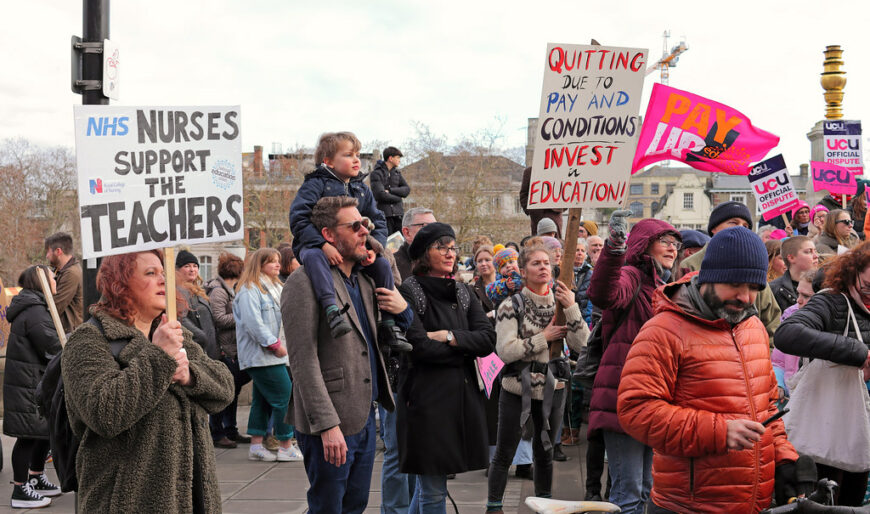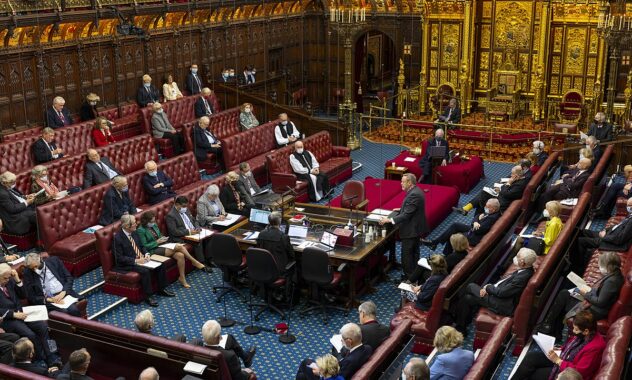Government intends to introduce Minimum Service Levels into schools during strikes
Education Secretary Gillian Keegan has written to union leaders inviting them to discuss the plans on a voluntary basis.

Ministers are set to introduce minimum service levels in schools and colleges, in a move branded as an “overtly hostile act that attacks the basic democratic freedoms of school leaders and teachers” by education unions.
On the Government website, Gov.uk, Ministers laid out their plans to introduce Minimum service levels to “protect children and young people’s education”, adding:
“The Education Secretary, Gillian Keegan, has today written to union leaders inviting them to discuss proposals on a voluntary basis in the first instance. In her letter she is clear that should a voluntary agreement not be reached the government is committed to using powers granted through the Strikes (Minimum Service Levels) Act that was introduced earlier this year. Such a move would lead to a consultation and is expected to include a range of models for MSLs in education, for parents, teachers, and other stakeholders to provide views on.
The Education Secretary said:
“Last year’s school strikes were some of the most disruptive on record for children, and their parents. We cannot afford a repeat of that disruption – particularly as schools and teachers continue to work so hard to help children recover from the pandemic.
I am asking the teaching unions to engage with us and agree to put children and young people’s education first – and above and beyond any dispute.”
Earlier this year, the government announced it was bringing forward new strike laws to “maintain a basic function and deliver minimum safety levels” in the public sector during industrial action.
It follows a series of strikes across the public sector, including in schools, the NHS and on the railways.
The government settled its dispute with teachers in July after every major teaching union accepted an offer of a 6.5% pay rise to end the strikes.
Commenting, Daniel Kebede, General Secretary of the National Education Union, said:
“The NEU strongly oppose the introduction of MSLs. We do not acknowledge the validity of MSLs given their impact on the fundamental right to strike, therefore we do not believe this is an appropriate topic for the Government or Department for Education to regulate.
The Government, led by a Prime Minister not elected by the public and who has just had two historic by-election losses, has no democratic mandate to implement such an attack on our democratic freedoms.
The Government would get further in minimising industrial action and disruption to schools if it engaged with unions on the issues that give rise to ballots. Gillian Keegan will be fully aware that unions including the NEU have comfortably passed voting thresholds designed never to be met, and on repeated occasions. Pay, workload and the recruitment and retention crisis will remain lightning rod issues for our members until the Education Secretary brings forward positive and substantial change.
Gillian Keegan should turn her attention to the fact that every day in schools a level of service well below what should be expected is experienced by children and young people. Parents and students should not have to tolerate inadequate SEND provision, crumbling school buildings, a lack of school funding resulting in cuts to subjects offered, larger class sizes and schools being forced to use teachers who are not qualified to teach a given subject. These are the consequences of 13 years of Conservative education policy. Parents expect better, and our children certainly deserve more.”
The proposed measures will also apply to colleges. Geoff Barton, general secretary of the Association of School and College Leaders, said this is “nothing more than an attempt to distract from her department’s own shortcomings”. He added it was
“unimaginable that there will any agreement over legislation that involves removing the basic rights of employees. Industrial action is only ever taken as a last resort, when all other options have been explored.”
Paul Whiteman, general secretary of school leaders’ union NAHT, which represents the majority of school leaders in England, said:
“This is nothing short of an overtly hostile act from the Government and an attack on the basic democratic freedoms of school leaders and teachers.
At a time when the Government should be building bridges with the profession, the timing of this couldn’t be worse. Not only are the Government’s proposals for minimum service levels fundamentally undemocratic, they are utterly unworkable in a school setting.
The Government says it wants to enter talks with unions about this but sees attention-grabbing headlines as more important than constructive dialogue.
There are a range of very basic questions that the Government seem to have not even considered, let alone are able to begin to answer.
The contempt that this Government has shown for workers and their representatives is astounding.
The Government says it wants to enter talks with unions about this but sees attention-grabbing headlines as more important than constructive dialogue. When it comes to industrial relations, this Government simply doesn’t seem to know what it’s doing.”
Patrick Roach, general secretary of the NASUWT, said:
“The Education Secretary’s announcement is a blatant attempt to distract from the crisis engulfing our schools and colleges on this Government’s watch.
At a time of a worsening teacher recruitment and retention crisis, when school buildings are collapsing and riddled with asbestos, and when pupils with special education needs are unable to access the specialist support they need, the Government is continuing to fail our children and young people.
Today’s announcement comes just hours after the Government suffered some of its worst ever by-election results.
The message is loud and clear: the public wants more investment in our schools and colleges, not a Government that is hell-bent on attacking the rights of dedicated, committed and hard-working teachers.”







